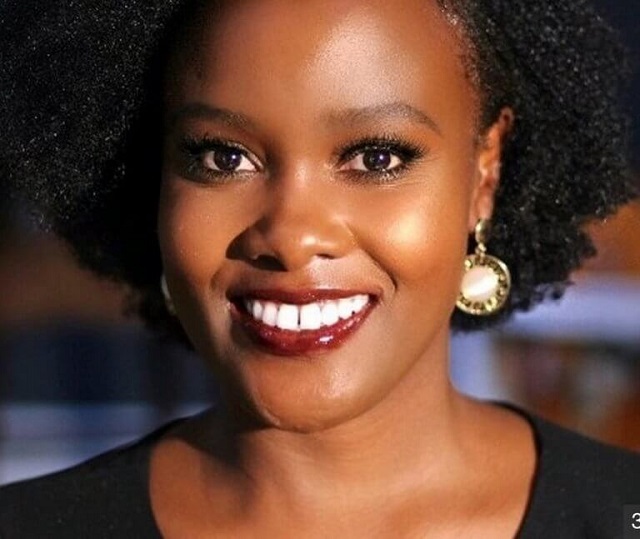Hilda Kabushenga Kragha, the new CEO of Jobberman Nigeria, is Ugandan by birth and Nigerian by marriage. Kragha is so proud of this.
The new boss of this global online recruitment firm, has had years of experience with blue chip companies in South and Western Africa, Spain, Denmark and Qatar. Until December 2018, Kragha was an Engagement Manager in McKinsey & Company’s Lagos office, serving private and public sector clients primarily on strategy, human capital, talent management, change management and organisational behaviour.
Kragha comes to Jobberman with a deep passion for human capital and a desire to transform the way African companies think about talent development, acquisition and management today. She shares her experience working in Nigeria with Tosin Clegg
Growing up in Uganda
I had my education with my siblings; one brother and two sisters, in Uganda. For university, I had the chance to move to South Africa and started Law School in Port Elizabeth and lived there for four years.
After I graduated, I went back to Uganda and worked with KPMG East Africa for a while before I went to Business School. I was motivated by the need for a bigger platform and it’s something that has been in the family for constant improvement and impact.
So, when I think of my time in KPMG, I got so much exposure to the world and global companies. Then, I knew I needed a bigger platform.
That’s why I went to business school in Spain and while I was there I recruited with McKenzie and eventually joined the firm. And I remember when they asked me where I wanted to go, I thought of having spent time in East and South Africa but for West Africa I haven’t been there.
So, I decided to go to the Nigerian office which was out of curiosity. But I have been blessed here as I met my husband, had a child and I’m pretty into the society now. But I still carry my pan africanness with me.
My childhood dream
I was certain about what I wanted to do until the age of 16. I was so certain I was going to be a Neurosurgeon. By some stroke of luck, at 9,10 of which then I was an avid reader, I read Gifted Hands by Ben Carson and I started thinking that this is me but when I think about it now I don’t know if I was attracted to him as a Neurosurgeon or a trail blazer.
Either way, I was obsessed with it until I turned 16 and I realised even though I love Biology, Chemistry was my cup of tea. After that, I realised I was deep into literature and I loved debate as I come from a family where my grandfather, uncles, cousins are lawyers and I felt I should go that way as my passion was pushing me towards the direction.
Africa is still tribal
A lot of the way Africa is still structured is tribal, ethnic and culture is still deeply entrenched. Which means for most Africans moving to another African city gives them more shock than Europe and America, which we have been exposed to their culture and know what to expect.
When you go to a few African countries, sometimes it’s all so cool there but when you go to South Africa, it’s impossible to exist there without noticing the racial differences and you have to reckon with yourself with that.
But when you come to Nigeria, everyone is hustling whether you want or not, everyone has at least a side hustle. It’s such a unique quality and I haven’t seen it anywhere in Africa or at least the level it happens in Nigeria.
Talking business in Africa
I was actually reading an article in the Economist about a Ugandan business man who owns Simba Telecom which is probably one of the biggest telecom companies in East and Southern Africa.
He got into Nigerian market 20 years ago and made so much money but because the culture of trust here is lower, it just never made it to his account and he had to retreat. So, it’s good to take time to understand the nuances in a particular country.
The system that would make you successful there is very important. We see a lot of multinationals who try to do that without proper context, end up failing. As people and ethnicities, we think differently, even with the same skin colour, as we are all raised in extremely different ways.
Raising capital and funding
This is a combination of a number of things. We in Africa need to get to a place where credit assessments are based on assessment and not on a relationship.
We live in a society where I could have no collateral but if I know the loan manager, I could get a N100 million loan and if I have the best collateral in the world and not have a relationship, then still get denied.
In countries where finances are more evolved and there is trust that doesn’t depend on people but on system, then, there could be development. Until we evolve, it would continue to be difficult and that’s why you find in our society today that people from wealthy backgrounds get to be entrepreneurs and not have the same working capital issues others have.
Coming into Jobberman as the CEO
I’m super excited to see how we can push things further. When I got here, I realised that we can actually do so much more and one of the things that Jobberman can do is play an active role in improving productivity in the work place.
And there are three ways to do this. One is to tackle transparency as jobs are not advertised like they should. In every company, I can bet that someone was hired because they know somebody in there and that’s not always the best person for the job and Jobberman plays the role in pushing transparency.
Secondly, our educational system fails our job seekers that cause a huge gap in employability. Jobberman can do more and should do more to play a role in tackling that because the better prepared our job seekers are to find employment, the better the success rate would be.
It’s not something we can do alone. So, this is where the role of partnerships comes up and a lot of people got the mandate to make this happen.
We have got a data base of 500,000 job seekers in Nigeria looking for an upscale and I believe in order to better up our game, let’s prepare our job seekers.
So, when I think of my visions for the company, we move from only trying to find jobs but inevitably take up our social media in increased employability and upscaling young job seekers.
Until now, jobberman has been led by its founder and it was someone who held it close to heart and that’s good and bad but the good thing is that when something is your baby, you are fighting very hard for your baby but the disadvantages of that is that sometimes it might not be easy to bring change to somewhere that’s been entrepreneurial-driven.
One of my challenges would be to get the buy-in of everybody but I know I have got support as I know I need my team to support me as well.
We are at a point where 10 years of excellence has gotten us to a particular place in the market and now is the time to be creative and innovative to move to the next level.
Young female leader in Africa
Being a young female leader in Africa is hard. It’s hard and can only work out well when we have support and sponsors so I’m coming to Jobberman and there is at least a third of the staff that’s older than me and some have spent more time here than me so it’s just developing that credibility.
From my perspective, it is typically harder and I know statistics would prove it for young females to get that credibility than would be for a 50 year old male for example. It’s a mindset thing and it’s something I’m willing to work with my team to overcome.
Young undergraduates
Right from the university, undergraduates need to take up a position of self-reflection. You need to constantly ask yourself if you are studying the right thing and if I am studying the right thing, what does it take to be employed in my field?
So, when you ask other people, that’s when you would know and do internships which would give you work experience.
There is a huge obsession in our culture to graduate in four years but if you can get a six months internship and graduate in four and half years is better than graduating early with no experience at all. Employers value qualification but experience is actually much better. So, that’s what I would say.
Always invest in yourself
Do you have a professional CV? Do you have a professional cover letter? Are you looking for coaching and are you interacting with people who can actually prepare you for your job search? And you need to start looking at those things from the start.
For example, if I had an interview today, how would I work around it? So basically you have to be prepared? This is what we get to work out with you. For me, it is a portrait of self-reflection and if you are taking charge of your career you would grow.












